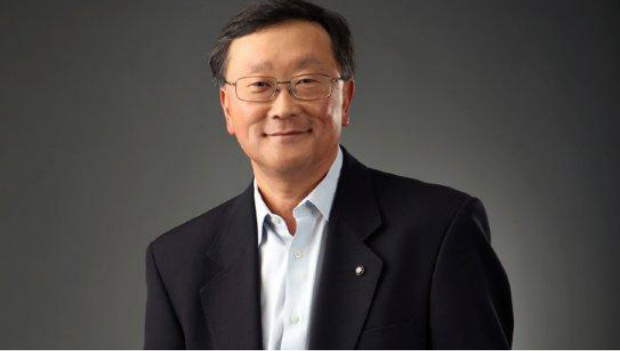 “Innovation is a word that gets used too often and carelessly. Innovation is not about blowing up what works to make something new – it’s about taking what works and making it better.” Those are the words of John Chen, CEO of Blackberry, in an open letter published on 29 October. He was using those statements to promote the company’s Blackberry Classic model which, unsurprisingly, is not something that has been blown up to make something new.
“Innovation is a word that gets used too often and carelessly. Innovation is not about blowing up what works to make something new – it’s about taking what works and making it better.” Those are the words of John Chen, CEO of Blackberry, in an open letter published on 29 October. He was using those statements to promote the company’s Blackberry Classic model which, unsurprisingly, is not something that has been blown up to make something new.
“It is classic BlackBerry,” he wrote, “complete with a top row of navigation keys and a trackpad. It’s the device that has always felt right in your hands and always felt right in your busy day.”
His argument presupposes that ‘classic’ Blackberry was completely blameless when the company fell into the difficulties it currently finds itself in. Quite a few people would disagree with that. In fact, many would argue that it was precisely because of their readiness to innovate that Apple and Samsung in particular have made such huge inroads into a smartphone market where Blackberry previously reigned supreme.
Blackberry’s problems have been compounded by its inability to compete effectively against Apple and Samsung in a much changed smartphone market. Too often, it has been viewed as playing catch-up (and usually falling short in the process).
I can understand the comfort of saying to customers and ex-customers, as Chen does, that there’s “something to be said for the classic adage, if it ain’t broke don’t fix it”. There’s a measure of reassurance too, in suggesting change isn’t always a painless or productive process. That’s the point Chen makes when suggests that changing “for the sake of change” and seeking to “mimic what’s trendy and match the industry-standard, kitchen-sink approach of trying to be all things to all people” might not be the best way to go. Certainly not for Blackberry, in any event.
It’s notable that he makes only passing reference to the company’s attempts to innovate and then only as a set up to talk to all those people who have chosen to ignore Blackberry’s newer products. “Sure, we’ve got new BlackBerry devices that break the mould, including the BlackBerry Passport. But we also recognise that a lot of you continue to hang on to your Bold devices because they get the job done, day in and day out – just like you. We get it, and we’ve got you covered,” Chen writes.
Long haul
Blackberry understands that customers “don’t reinvent yourself every day, you take what you learned yesterday and sharpen it today. You drive change – often on your terms, but sometimes not. That you keep going regardless is what distinguishes you as a grown-up. You’re in it for the long haul.”
That might not be particularly controversial, but it is interesting. Look at the way, for instance, it appeals to the vanity of those Blackberry users who have remained steadfast and loyal to the company at a time of significant upheaval in the market. They are “grown ups” so, by implication, they’re not flighty adolescents likely to change their smartphones as often as they do their brand of toothpaste. Blackberry customers are serious people who are “in it for the long haul”.
The good news for those customers is that there’s a company that’s just as grown up as them. Just as they are in it for the long haul, “so is Blackberry. The things you remember about BlackBerry that made you better are better than ever with BlackBerry Classic. BlackBerry Classic is for you, as is everything we do every day”.
Underneath it all, however, the letter is essentially a defensive move trying to keep the company’s existing customer base on board and stave off attacks from Apple and Samsung on Blackberry’s core enterprise smartphone market. Will it work? It really depends just how loath those customers are to change and how well Blackberry manages the process of taking something that works and making it better.
In other words, how well can the company convince users that “BlackBerry Classic represents the kind of innovation BlackBerry – and you – strive toward every day”? Is that really enough innovation for them? And if it is, does that mean Blackberry should stop trying to “break the mould” with other products? Because doesn’t breaking the mould sound just a little a bit like “blowing up what works to make something new”?






Subscribers 0
Fans 0
Followers 0
Followers